What literary pilgrimages have you gone on?
Pilgrimages? That makes it sound very spiritual. The journey that started me toward writing Dani’s Inferno started when my son challenged me, pointing out that I had put aside writing the fiction that I loved to write when I started writing professionally and had put my own God-given dreams on the back burner. That started a time of prayer and soul-searching in which I took a look at dozens of stories I had outlined or started and asked myself, “If I only get the chance to tell one story to the world, what would I want it to be?” What is the first book that made you cry? Charlotte’s Web. I was probably six, and I think my mom spent more than an hour consoling me so that I could get to sleep. Incidentally, it still makes me cry. Doesn’t matter if it’s the book, a stage play, the cartoon movie, this story has always done that to me. I love stories of sacrificial love, and Charlotte’s sacrifice for Wilbur is what started my love for those sorts of stories. What is your writing Kryptonite? I grew up writing in a home with four noisy younger siblings, a dog, and a cat. At any given time, all of them except the cat were likely to want my attention. I really don’t have much trouble tuning everything out and writing. If anything, what I’ve heard others call “the rapture of research” may be my kryptonite. I’ve been known to spend entirely too much time on rabbit trails when I need to research some point or other. One interesting thing leads to another, which leads to another, which doesn’t lead to much addition to the word count. Do you want each book to stand on its own, or are you trying to build a body of work with connections between each book? I don’t see any reason a book can’t do both. I do have a sequel in mind for Dani’s Inferno and am working on a breakout short story based on one of the characters, but I hope that the sequel would stand on its own if read separately. I also have plans to write books that are completely separate and that will likely be standalone books. How did publishing your first book change your process of writing? I don’t know that it really has all that much. One thing that I am doing differently is using date/time/location tags with every scene change now. They will probably be edited out, but having them available makes it easier to answer timeline questions if they arise in the editing process. As a writer, what would you choose as your mascot/avatar/spirit animal? Interesting question. I suppose an ant, because I love their focus and ability to stay on task - a skill I had to work hard at learning. Proverbs 6 in the Bible encourages us to look to the ant for wisdom, pointing out that they work diligently even though no one is looking over their shoulder. As an author, at least before you’re published, no one is cracking the whip and telling you to keep moving. You have to be self-motivated and self-accountable. That said, I lived a long time in Louisiana, so definitely not a fire ant. Those buggers are mean. Just a regular run of the mill ant. What did you edit out of your books? (keep it family-friendly, please) I had initially outlined the book to deal with an abortion but decided it had enough other heavy subject matter. On a funnier note, one part I intended to edit out was when I was writing late at night and realized I’d just had my 17-year-old girl protagonist tell a total dad joke. I shook my head and wrote in my notes to change that the next day. But my then-15-year-old daughter read it, laughed, and convinced me to keep it. What one thing would you give up to become a better writer? Other than my family and my relationship with God, take your pick. Seriously, I think most of us who are serious about writing give up a lot of time - time spent writing, of course (ultimately the only way to get better at anything is to do lots of it), but also time reading and studying the craft of writing. What is your favorite childhood book? Tough call. Charlotte’s Web is still up there, as are the Little House books. Johnny Tremain was a favorite. Probably, if you’re making me pick, though, it’d be The Chronicles of Narnia. Specifically, either The Voyage of the Dawn Treader or The Horse and His Boy. I was first introduced to Narnia when my little brother brought the books home from the school library. Being 11 years old and way too mature for such things, I teased him mercilessly about his silly books about talking animals (not proud of that), then read them myself when no one was looking. Because I was reading them on the sly, I never did read them in order until I was an adult, reading them as bedtime stories to my son. Reepicheep, the noble mouse knight, is still my favorite character in all literature. What is the most difficult part of your writing process? Deciding which idea to work on and sticking with one idea. I spent many years with multiple projects going on at any given time, which led to never finishing anything longer than a short story. I have never understood the idea of writer’s block, but I do have the opposite problem of so many ideas that I have a tough time picking one and buckling down. What is the easiest part of your writing process? Creating the stepsheet or outline. Sticking to it is another story. I tend to approach the process of writing like a planner, but the writing itself like a pantser, so sometimes I do have to go back to the drawing board when my characters carry the story off the rails on me. Fortunately, I enjoy that part of the process, so it’s not terribly tedious. A common misconception entwined with authors is that they are socially inept, how true is that? I think writers are all over the spectrum, but we do tend to skew a bit toward introversion. Personally, I do fine in social situations, and I’m not shy or awkward, but I am introverted and can get along fine with only the people I make up for company most of the time. When did it dawn on you that you wanted to be an author? When I was in first grade. Our teacher, Mrs. Phillips, made a big deal to the whole class about a story I wrote about SCUBA diving with sharks and whales. Apparently, having a distinct beginning, middle, and ending is impressive for a six-year-old. She helped me turn the story into a little hardbound book. I wish I still had it. It’s crazy, but I can still get a case of the feels thinking about her affirming my creative efforts. More than forty years later, I can absolutely say that Mrs. Phillips, my fifth grade teacher Mrs. Kraft, and my eighth grade English teacher Mrs. Chandler are the biggest reasons I became and remain a writer. Who are your biggest literary influences? This is a bit of an eclectic list, but C.S. Lewis, Jerry Jenkins, Francine Rivers, and John Jakes. What’s your favorite movie which was based on a book? Why? The 2005 version of The Lion, the Witch, and the Wardrobe. It’s one of the few movies that I feel actually improved on the book - quite an achievement considering the book is fantastic. The directors did a fantastic job bringing that story to life. How did it feel when your first book got published? How did you celebrate? Incredibly validating. I’ve had lots of ghost-written work published before, and lots of editorials and news articles I’ve written have been in print but receiving an offer to publish my first novel was unforgettable. I didn’t do a lot to celebrate, other than share the information with the screenwriting class I was taking and maybe go out to eat, though. I’m a fairly low-key guy. I mean, I spent the next couple of months smiling a lot and doing virtual victory laps, but not much other than that. What is that one thing you think readers generally don’t know about authors? Sometimes people act like they’re in awe of your accomplishment when you say you’ve written a book. It’s not like it took some kind of superpower. There’s a certain amount of creativity that can’t be taught, of course, but for the most part, writing a book is like any other project - it’s work. Wonderful work, but work. So, I guess it’s that authors are pretty much like the rest of the world. We just have a little bit weirder thing that we spend our time and effort on. When it comes to research for your books, are you a hunter or a gatherer? Talk about your research process. Both. I always have my eyes and ears open for interesting information, interactions, and points of view, but I will also dive deep into research because I want to get things right, especially since I tend to write period pieces and historical fiction. I know as a reader it drives me batty when a writer gets basic historical stuff wrong in their writing, so I try hard not to do that to others. Could you be housemates with your characters? Why or why not? I already am. I mean, there’s a little bit of me in most of the characters, so on some level, they already live here, whether I like it or not. Seriously, though, there are characters I’d love to have a root beer with and characters I’d like to slap. Often, those latter types are the ones that have more of me in them than I’d care to admit. What’s your typical writing routine or schedule? I know this is probably the wrong answer, or at least an unpopular one, but I don’t really have one, at least not all the time. In writing Dani’s Inferno, I promised myself I’d write at least one scene per day and, with very few exceptions, I kept that promise. Whether a scene was 100 words or several pages, I made sure to write at least one full scene. So, when I’m on a project, I do set a routine, but I’m very loose as far as scheduling and I don’t feel like I always need to be in the middle of a project. I think I benefit from having seasons of writing and seasons away from it. Writing can be an emotionally draining and stressful pursuit. How do you recharge? Writing fiction is generally recharging for me. It’s what helps me recharge from the other draining and stressful pursuits of life. When I was doing a lot of journalistic writing, which is somewhat less recharging for me, I would take breaks and read something completely unrelated to what I was working on. Do you prefer music or silence when you write? Do you have a writing playlist? What’s on it? It depends. Sometimes, I need music in the background. Other times, I need quiet. I tend to tailor the music to what I’m writing. In the case of Dani’s Inferno, I listened to a lot of hair rock and Christian rock artists like Petra, DeGarmo & Key, and Amy Grant. With a World War II project I was working on, I listened to a lot of ‘40s music. Which celebrity would you choose to narrate your audiobook? My book switches back and forth between two point-of-view characters, the 17-year-old protagonist and her older brother. Ideally, I’d love to have it narrated so that the scenes in Dani’s head are read by a female and the scene’s in her brother’s point of view read by a male. I guess if I had my pick, I would love to see CCM artists Amy Grant and Carman narrate. I’m probably dating myself by picking artists who were big in the ‘80s, but that’s kind of the setting of the book (early ‘90s), so I think it fits. What well-known author, living or dead, do you wish could be your mentor? Why? C.S. Lewis. In addition to his being such an enduring author, I think we could really connect discussing theology and history. What is your favorite of the six senses (touch, taste, smell, sound, sight, intuition) to write about, why? Probably intuition, though I find I have to be careful not to overdo it. Giving a character too much intuition can feel a bit like cheating, but giving them those occasional flashes of insight can give readers a glimpse into who the character is inside. What is a favorite location you’ve written about? Have you visited that place? How did you choose which details to include? Northern California. And yes, as a matter of fact, I moved to Northern California in December 1990, and was there during the start of the Gulf War, which is when Dani’s Inferno, starts out in Northern Cali. I remember it well because I moved out there thinking the whole state was one big beach and constantly 85 degrees. Turns out, it got down to the teens when I was there (I hadn’t even packed a coat or a sweater). At the time, they were record-breaking lows. I had always wanted to work that little weather-related tidbit into a story, and managed to, albeit in a small way. Travel back in time (without negative effects for y or the timeline) what year do you visit? Why? Not fair to ask me to travel to just one period, but if it can only be one, I’d go back to sometime between A.D. 50 and 60 because my next project is set in that time period and I’d love to see how the common folks lived in the provinces of the Roman Empire (and Ephesus, in particular). What is something about your hero or villain that drove their character, but you didn’t specifically tell your reader? Dani, the titular character, becomes very attached to people and absolutely can’t stand to feel like she’s let someone close down. It makes her a loyal friend but also leads to some poor decisions. Have you ever resuscitated a project you'd shelved? What helped it work better the second time around? Yes. In fact, Dani’s Inferno originally started when I was working with at-risk youth in a residential facility. I made it up on the fly as a series of bedtime stories based loosely on the Parable of the Prodigal Son. I started to write it dozens of times, and outline it several more, but it was never quite what I wanted it to be until one time I made one change - I changed the prodigal to a daughter and the story instantly became 1,000 times stronger. It went from a story I’d have liked to have told to one I had to tell. What do the words “literary success” mean to you? How do you picture it? If someone reads my book and is moved by it, especially if they experience the love of God through it, I consider that success. Numbers are great, and I’d love to sell millions of books, but it’s honestly not about sales or bestseller lists (cool as those are). For me, it really is about one reader turning the pages, finding something to relate to, and walking away with some encouragement, consolation, comfort, or really anything that makes them feel their life is better for having spent a few hours reading my scribblings. Can you tell us about your current projects? I’m working on outlining several projects. The frontrunner for my next project is a story set in first century Ephesus and deals with the relationship between a young man whose father makes silver idols for the Artemis shrine Ephesus was noted for and the family’s Christian slave. The other projects I could possibly move ahead of it include a love story set during the Louisiana Maneuvers in the runup to US involvement in World War II. There is a humorous and historically true interaction that took place between General Patton and a local priest in one of the small local towns that gave me the initial idea to set a story during those exercises. And there’s a sequel to Dani’s Inferno that I might move to the front of the line. Any advice you would like to give to aspiring authors? At the end of the day, if you want to be a writer, you need to write. With that said, though, take time to learn the craft. Read as much as you can about writing. Pick other writers’ brains as often as you can. And read a lot of the types of books you’d like to write. Please provide links and/or instructions about how readers can purchase signed copies of your books. The best place to buy my book is on Amazon, though it’s also available on Barnes & Nobles and most places where you can buy books. If someone would like a signature, they can contact me directly at my Facebook author page and I’m happy to make arrangements to send a signed plate or otherwise sign their copy. https://www.amazon.com/Danis-Inferno-Scott-M-Rutherford-ebook/dp/B08H4WWCZL https://www.facebook.com/Scott-M-Rutherford-Author-2011258115667743
0 Comments
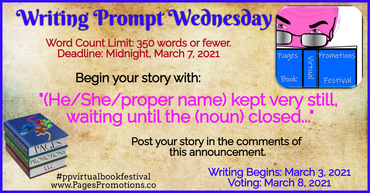 Oscar Harlequin kept very still, waiting until the book store closed. It was a store warehouse with three levels, the top being an attic with a skylight that had never been dusted. Few book lovers went up there, and he had stashed the backpack with his books near the old-fashioned radiator. He was in the second-floor men’s room when the lights blinked off and on. The most heart-arresting moment was when a clerk opened the door and announced, “Store closed in fifteen minutes.” For some reason, the clerk came into the room, walked around casually. Had he detected something? Was he naturally suspicious? The flushing of a urinal gave Oscar the answer. Fifteen minutes later, the room went totally black. Oscar pulled out his iPhone and turned on the light. (He dismissed bringing a flashlight, that would raise suspicions.) For some reason the stall door squeaked. Had it squeaked when he first opened it? Was the blackness magnifying the sound? Or was he just jittery? After several deep breaths, Oscar ventured into the book aisles. In the darkness he felt like a shadowy, meek Godzilla plodding through a city of ghostly book buildings and trying not to break anything. Not sure whether the elevator worked, he took the spiral iron stairway to the attic. As he gripped the railing, he was overwhelmed with the sense of his own stupidity. Had he even thought about where to put the books? They had an imitation romance cover -- his wife trying to smile in a red summer dress with a big straw hat -- but how convincing was it? Once in the attic, he threw the light from his iPhone in the direction of the radiator, but he didn’t see the backpack. He was about to rush forward in a desperate search when a figure emerged from the shadows. He immediately thought of the nun in the tower at the end of Hitchcock’s "Vertigo." But it wasn’t her. “You don’t need to go through all this, you know,” the woman said in a stern but amused voice. ~Michael Simpson 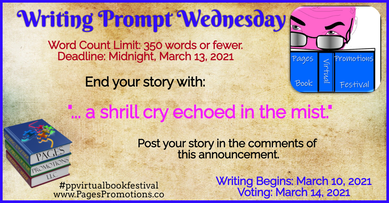 “It couldn’t be time yet, it couldn’t.” Kargil screamed over and over in his mind as he ran through the dense overgrowth. The thorns cut his skin and he felt the blood run from the stinging cuts. He did not stop. The clearing came fast, and he tripped and fell to the sandy ground carried by the momentum of his push through the brush. Before him he saw the bare feet of his wife. He looked up from his kneeling position to see her knees, dress, long red hair, and finally her face. She was overcome with fear, sweat covered her visage, and she was breathing heavily. A huge taloned hand rested below her chin. “Why do you pursue us,” came the gritty and powerful voice from behind her. “She made the deal; the deal is done.” “She did it for me!” Kargil cried. “I was not worthy of her gift, take me instead.” The laugh sounded like hundreds of teeth in a blender being shaken. “You are of no value to me. The deal was I save your life and she was granted 5 years to spend with you. Has it not been five years, have you not had this time?” “I made the deal,” Karen pleaded, “I knew, let me go.” “You see?” The voice boomed. “She has accepted her fate, you should do the same.” A second taloned hand reached out and a deep mist formed behind them. “She is mine now and will serve my needs for dozens of years.” “No,” Kargil screamed and launched towards her, grabbing her hand. “I love her!” Two more arms reached around Karen instantly and grabbed Kargil by the shoulders. The grip was impenetrable. “You task me human. Do not do so again or I will take your spawn for my pleasure as well.” Kargil thought of their daughter as he was thrown to the sand. He did not move as the 8-armed monolith stood and leapt into the mists with his wife. As he felt the tears run down his face a shrill cry echoed in the mist. ~Andrew Smith 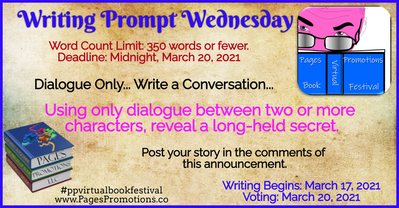 “Who are you?” “You don’t remember me?” “You were a friend of my fathers?” “I was a friend of your family, for a very long time, but…” “But?” “Do you remember the Clydewell house?” “Yes. Vaguely. Why?” “Do you remember what happened there?” “You’re referring to the accident? What happened to my sister?” “I know that what happened at Clydewell house was not an accident. ” “What do you mean wasn’t an accident? What do you know about how my sister died? “You’re asking the wrong questions.” “what question should I be asking then?” “Where is she, and what was your father covering up? “Are you telling me that my father lied?” “No, I am saying that he only told you half the truth.” “And my sister? She’s alive?” “Yes, but I can only tell you this for certain, your sister knew something, something your father had to keep hidden.” “What did he have to keep hidden?” “Men of wealth and power have many enemies and many more secrets.” “How do I find her?” “Figure out what your father was trying to hide, that is the key to this riddle. I also believe that it cost me my life.” “your life?” “What I saw of your sister, I should not have I think and your father well…you know your father.” “How could it have cost you your life, you’re sitting here, on this train with me now and you’re telling me my sister is alive?” “What was your father trying to cover up? That is the only way you will find her.” “No, wait, don’t leave.” “Would you care for a drink sir?” “That man, who was he?” “Excuse me sir I do not know of whom you speak.” “Surely you passed him just now, in the hall. He was old, scared face, with a pipe.” “No sir there were no others except you. Can I get you anything?” “Whiskey, neat.” “Very good sir.” ~Mike Asselin 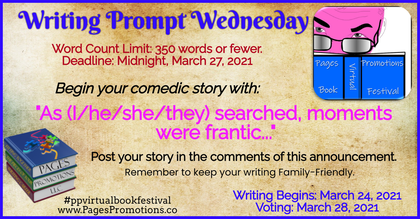 As I searched, moments were frantic, the world around me blurring as I rushed about my cluttered bedroom. The clock clicked in an annoying reminder that Noelle was due to be knocking on my front door sooner rather than later. “You forget something?” Mike, my roommate with the consistently worst timing, was leaning against my door frame, smirking at me. I brushed my hair flat again, my reflection showing a messy appearance rather than the handsome Prince Charming I was hoping for. “Come on, bro...you know what this means to me!” Mike rolled his eyes. “Dude, it’s Noelle. We’ve been friends with her for three years now, I don’t know what has you such a mess.” A tried to control the heat creeping up my neck. “Yeah, but this is our first real date and I want her to see me as more than a friend.” I could see Mike’s fighting a grin, his blue eyes twinkling with mirth. My curt dig was cut off before it could begin by a light knock to our front door. It was her. I took a deep breath, Mike was right...date or no, this was Noelle, one of my best friends and just about the prettiest girl I’ve ever met. “What do you think?” I asked my roommate. His eyes roved me up and down, “Well, she’ll definitely be looking at you differently!” After answering the door, Noelle’s eyes brightened and she giggled. “Where did you say we were going?” “That barbeque joint in town? Figured something casual would be ok. I mean, if that’s what you want?” “Oh, casual is fine...it’s just...I think they still might require pants.” Noelle vaguely gestured to my lower half. With a blush, I looked down to see my Batman boxers winking back at me. I ran my hand back through my hair, feeling the locks spring into their usual messy cowlick as my face burned a bright red. “Right. I’ll be right back…” Mike was wiping tears as he gasped through his laughter, “Well dude, at least she can check out your butt!” ~Chelsea Gouin
What literary pilgrimages have you gone on?
The Pages Festival—THAT was my literary pilgrimage. My other ‘literary pilgrimage was a trip to Israel where we “followed the Bible”, in search of the biblical Mt. Sinai. It was quite an experience. What is the first book that made you cry? The Diary of Anne Frank & To Kill a Mockingbird. I don’t remember which I read first. What is your writing Kryptonite? Descriptions of people and settings, I prefer to get to the point asap. Do you want each book to stand on its own, or are you trying to build a body of work with connections between each book? Both. I try to put myself in a reader’s shoes. I write about particular legal and political issues of the day. If a particular issue appeals to a reader, I don’t want to force a reader to read my entire list to be able to read about his or her chosen topic. As a writer, however, character interactions and introduction are contextually important, and I’d prefer that my readers read my series novels in order. How did publishing your first book change your process of writing? I wrote and published my first novel, Betrayal of Faith, from a personal case experience. The novel was about the ‘case of my life.’ I wouldn’t say it changed my process; I would say it created my process. It became more of a ‘springboard’ for future novels. Once I experienced the process of writing a novel and knew I could actually do it, the question was: Can I write novels about cases and/or issues I did not personally experience. For the second novel, I chose a topic that felt personal to me, the 2016 election. After I wrote Betrayal of Justice, choosing important legal and political issues of our time and writing about them became ‘my thing.’ As a writer, what would you choose as your mascot/avatar/spirit animal? A legal eagle What did you edit out of your books? (keep it family-friendly, please) I try to make the law interesting, while still explaining the issues I write about in a reader-lay person-friendly way. Some people praise my work and say I’ve accomplished my goal of discussing legal issues in an entertaining way. Others have said I explain too much. I don’t know who’s correct, but I do want to make sure readers understand what I am writing about and why I am so passionate about a particular issue. What one thing would you give up to become a better writer? I’ve already done that. I published my first novel in my 60’s. My leisure time and retirement have been sacrificed, to some extent, for my writing career. On the other hand, my writing journey has been interesting and enjoyable, perhaps, enhancing my ‘golden years.’ I believe, going forward, that I have developed a nice balance between the two. What is your favorite childhood book? The Cat in the Hat by Dr. Suess. What is the most difficult part of your writing process? If you write to “sell” books (not everyone writes to sell) as I do, the most difficult part is developing recognition and marketing my books. Assuming that is not what is meant by the question, it is dealing with ‘fits and spurts’ or ‘writer’s block.’ If I’ve put a book down for a while, I won’t always remember where I left off, and I end up rewriting something that I’ve already covered. This isn’t always a bad thing, though, because, sometimes, I write it better the second time. What is the easiest part of your writing process? Topics. Fortunately or unfortunately, there are a plethora of legal issues, with serious consequences in the real world, for Zachary Blake to tackle in his fictional world. Hopefully, my novels and Zachary’s experience in dealing with them help readers understand their importance to our fellow citizens. It shouldn’t matter whether the reader is currently dealing with a particular issue personally. We can all have and/or develop more empathy for our fellow citizens. A common misconception entwined with authors is that they are socially inept, how true is that? With all due respect, the question is phrased with an inherent bias. You declare that social ineptitude is a ‘common misconception’ and then ask if it is true. It can’t be true if it is a misconception, right? In my case, however, it is totally untrue. I’m a very sociable guy and I write very socially conscious stuff. Genius (not me—Hemingway, Shakespeare, Twain/Clemons, F. Scott Fitzgerald, J.D. Salinger, and the like) might appear to be socially inept because of their genius, if you get my drift. Could a mere mortal have a routine conversation with Albert Einstein? When did it dawn on you that you wanted to be an author? After I finished my first book, I realized I had many more legal issues and topics to write about, and much more I wanted to say. Who are your biggest literary influences? All of the other legal-themed authors who came before me. Special mention to Harper Lee, because social injustice in our legal and political systems are of particular interest to me, which is reflected in my novels. What’s your favorite movie which was based on a book? There are so many, this is a difficult question. If absolutely pressed to name one, I would have to say Gone With the Wind because of the sheer enormity of the project and the fact that the movie has stood the test of time. How famous would Margaret Mitchell’s novel be today, but for the movie? A similar statement might be made for L. Frank Baum’s The Wonderful Wizard of Oz or Mario Puzo’s Godfather Trilogy and other movie classics that were made from novels. How did it feel when your first book got published? How did you celebrate? I self-published. It was quite costly, not a good experience, and I almost gave up. I probably should write a book about how to avoid all the mistakes I made. I have learned a lot since then and I celebrate my entire body of work, the people I have met, the knowledge and experience I have gained as I have navigated the process. What is that one thing you think readers generally don’t know about authors? I don’t have tremendous insight to offer here. I would say the same thing I often say about celebrity worship in America. We are all people, doing our thing, struggling (or, in some cases, not struggling) to get by, just like you. No one is better than you or smarter than you, just different than you. We can all learn from each other. When it comes to research for your books, are you a hunter or a gatherer? Talk about your research process. Both. Probably more of a gatherer, though. I filter through mountains of information before I ever sit down and condense it all into a novel. Could you be housemates with your characters? Why or why not? It depends on the character. Some of my characters are pure evil and would make terrible housemates. I’d be envious of Blake; he’s a much better lawyer than I am, but I could certainly be his housemate. For some reason, most of my novels feature a strong female (or two or three) protagonist, and they are my favorite characters. I love them all and could definitely be housemates with them (but my wife would object). What’s your typical writing routine or schedule? I don’t have a routine or schedule. I write in fits and spurts, unfortunately. I try to find time to write every day, but it never works out. My real job, my family, and other things often get in the way. Having said that, I have managed to write six novels in four years. There have been lots of “spurts,” I guess. Writing can be an emotionally draining and stressful pursuit. How do you recharge? I compartmentalize reasonably well. The difficult part for me is that, while I write fiction, my novels are usually based on real events in America. My first novel was based on real cases and real people caught up in the Catholic Church’s clergy abuse scandals. 40 years after the fact, my clients and others like them are still suffering from the after-effects of these events. I’ve written about white supremacy, police shootings, school shootings, religious and racial discrimination, political gamesmanship, immigration tragedies, and the Holocaust, inspired by actual events. Real people have suffered real tragedy in America and abroad. I try to offer practical and sensible solutions, which helps a bit. Do you prefer music or silence when you write? Do you have a writing playlist? What’s on it? Silence is golden when I write. No playlist. Which celebrity would you choose to narrate your audiobook? 0My novels are narrated by Lee Alan, a legendary radio personality in the Detroit area. He did a beautiful job and the audiobooks are compelling versions of my work. If I had an unlimited budget, however, I would have multiple voices for different characters. As I understand the question, however, the greatest voice in behind the character narration in the history of the world, is James Earl Jones. His is like the voice of G-d! What well-known author, living or dead, do you wish could be your mentor? Why? This is a very difficult question. As I indicated previously, I stand on the shoulders of all of the legal content authors who came before me. If I were to choose one author who I believe could make me a better author, it would be Pat Conroy. His words ‘sing’ to me. What is your favorite of the six senses (touch, taste, smell, sound, sight, intuition) to write about, why? Intuition? My word would be “feelings”. Something consequential happens to my protagonist in each novel. I want the reader to feel, in a very personal way, what that character is feeling. If a reader experiences a deep visceral connection to the character, perhaps that reader will help effectuate change in America. What is a favorite location you’ve written about? Have you visited that place? How did you choose which details to include? Detroit, Motown, the Motor City, Hitsville USA, the Paris of the Midwest, The D. Detroit is the most misunderstood and misrepresented city in America. Real people live here. As to details, I chose them as they seemed relevant to what I was writing, no rhyme or reason, but with the intent to convey what is real and wonderful about my hometown. Check out the skyline on my website, at www.markmbello.com. Beautiful! As I write this I am thinking about Sammy Davis, Jr.’s “Hello Detroit.” You’ve won my heart! Travel back in time (without negative effects for you or the timeline) what year do you visit? Why? The roaring 20’s. Sounds like everyone had a great time! I do believe, however, that reality might be somewhat different than historical reporting of reality. How true is ‘history’ and who is reporting it? Is it sugar-coated to make us feel good about ourselves? We all make our own life experiences. Who’s to say we aren’t living through the best times in history? Considering what the country has experienced in the past few years, that concept might be tough to swallow, but those who lived through other times, might just be envious. What is something about your hero or villain that drove their character, but you didn’t specifically tell your reader? I don’t believe this applies to my heroes or villains. I would say, however, that they are not all created equally. By way of example, some of my villains are pure evil and some are quite tragic. Likewise, my heroes get there on much different roads. Have you ever resuscitated a project you'd shelved? What helped it work better the second time around? Yes—Nothing more than a fresh look or a new perspective influenced by time. What do the words “literary success” mean to you? How do you picture it? Huge numbers of people finding and reading my work, spurring them to action to create more fairness, justice, and equality in our world. Can you tell us about your current projects? My latest novel, Supreme Betrayal will be released in the Spring 2021. It is about the political and legal battle waged to seat a United States Supreme Court Justice. Do character, morals, or good and evil matter? Or, have our politicians become so jaded, all that matters is political ideology? I just finished a Zachary Blake novella, set in Detroit, near the time of Zack’s Bar Mitzvah, which recounts his grandfather’s Holocaust experience. The novella will be available on Amazon, but readers may choose to download it for free at my website. Finally, I am currently writing a novel about our country’s immigration crisis, focusing on a Central American family who overstayed their visa and a Syrian Muslim who becomes a hostage when she tries to return home to visit her family in Syria. This has been a very interesting and enlightening experience. As the grandson of immigrants, I keep thinking “There but for the grace of G-d, go I.” Any advice you would like to give to aspiring authors? Find your passion and just write, baby! Please provide links and/or instructions about how readers can purchase signed copies of your books. Order the book on Amazon and mail it to me with a self-addressed, stamped media mail envelope to 7115 Orchard Lake Road, Suite 320, West Bloomfield, MI 48322 and I will sign it and get it back to you via the media mail envelope provided, or . . . Purchase the book directly from our website at https://www.markmbello.com, request a signed copy, and I will sign it before I send it to you. Thanks, this was thought-provoking and entertaining. The Prompt: Begin Your Story With: "Half the names on the list had already been crossed off." 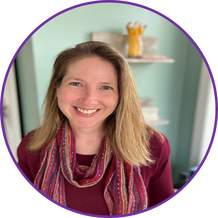 Deborah Reed 235 words Half the names on the list had already been crossed off. The rest…mmm, the rest… I always left the sweetest for last. It was more satisfying when they were young, when their innocence created a veil between their mind and the harsh truth staring them in the face. They did not realize yet that I was something most humans feared. It made the horror of realization that much more rewarding. “Abigail,” I whispered, stroking her cheek with one long talon, my robe trailing along her thin arm. The child stirred, face flushed with sleep. Her countenance contained nothing but purity as she woke slowly. “It’s time to come home, Abigail.” With the innocence only a child can possess, she put her small hand in mine. “Who are you?” she asked, rousing just enough to realize I was not her mother, nor her father. “Someone to whom you belong,” I said reassuringly. “But what do I call you?” she asked, bare feet padding softly along the floor. I remained silent. “Does my mommy know you’re here?” “Not yet, Abigail. But she will soon.” “What do I call you?” She became more insistent, her hand tightening in mine. Already it was fading away, the purity I craved. I ushered her into my world, the sweet scent of innocence fading as the veil dissolved and Abigail looked full in my face. “You may call me Death, my child.” The Prompt: Begin Your Story With: "The entrance to the tunnel was the only way out..."  Chelsea Gouin 343 words The entrance to the tunnel was the only way out...that phrase had been ringing in her ears since they entered the caves, the slick, oily voice that had first whispered the sinister words repeating in a never ending reprise. Jessica glanced at Jenni, huddled in a ball near a stack of rocks in the corner. Her breathing had evened out and her shivering had dulled to an occasional shake. Jenni's leg was still jutted out awkwardly, the makeshift cast they'd constructed from their hiking gear and hoodies giving a misshapen shadow on the rocky walls. "The entrance to the tunnel..." "Yes, I know!" Jessica hissed, her eyes scanning the dimming light for a sign of voice's owner. No luck, the phantom continued to elude her. Jenni and Jessica had decided to explore the caves on the edge of town on a dare...a dare neither of them remembered issuing but somehow felt compelled to complete. And it all ended with one disaster after the next. The cave-in that altered their path, their phantom taunting their journey, the mountain lion whom they narrowly escaped thanks to a discarded pocket knife, and Jenni's injury. Her leg was swollen from infection thanks to a jagged scratch. Jessica twirled the pocket knife in her grasp... she'd have to carry Jenni down the cliff, drag her back into town...all the while fighting her own fatigue, hunger, and thirst. "Or, you could leave her here...one flick of the blade and you're free...out the sole exit and back into fresh air..." That voice again....Jessica shook her head to rid the whisper from her ear, screaming as fingers grasped her shoulders. She plunged the knife into the body pressed against her back with a scream. A few heavy breaths and her vision cleared to the now bloody body of Jenni. Stumbling in horror at what she'd done, she scrambled for the light at the entrance of the cave, gasping in fresh, clean air. "Congratulations..."the voice whispered in her ear. Glancing at the knife, Jessica saw only her own smirking reflection staring back.
What literary pilgrimages have you gone on?
I haven’t been on very many literary pilgrimages, but my most memorable was when we were visiting a friend in England and she took us to London on our last day there. You best bet that we rode the tube in the London Underground, and though we didn’t stop everywhere Richard Mayhew did in Neil Gaiman’s Neverwhere, I at least recognized each stop. We also stopped at Platform 9 & 3/4 at King’s Cross. What is the first book that made you cry? Hmm, good question. Probably Harry Potter and the Goblet of Fire. What is your writing Kryptonite? Oh, gosh. The Research Rabbit Hole gets me every time. Do you want each book to stand on its own, or are you trying to build a body of work with connections between each book? I am currently editing a spin-off to The Techno Mage that could act as a standalone… but as a Pantser, I don’t have a preference on if my books connect or not. Whatever happens at the time I write is good enough for me. How did publishing your first book change your process of writing? I learned so much from my debut novel The Techno Mage. And while I really should apply what I learned to the writing stage (using all five senses in description, no info-dumping, showing rather than telling), I have to apply it to the editing stage, instead. When I write, I write bare-bones. I just need to get the idea out of my head, then I can embellish it. As a writer, what would you choose as your mascot/avatar/spirit animal? I had to laugh at this question because the only thing that I could envision was a dog with “squirrel!” syndrome. That’s probably my mascot! What did you edit out of your books? (keep it family-friendly, please) There are a few things that I edited out of The Techno Mage, but one of the biggest things was that I edited out an entire character. It pained me so much, but that’s alright: he makes his appearance proper in the spin-off! What one thing would you give up to become a better writer? Definitely my perfectionism. I could go without sitting there for hours on end trying to find the correct word to describe something. What is your favorite childhood book? Green Eggs and Ham by Dr. Seuss has always been my favorite. I made sure it was part of my son’s bookshelf before he was even born! What is the most difficult part of your writing process? The editing process. I still haven’t perfected it, yet. What is the easiest part of your writing process? As long as I don’t have writer’s block (because as a Pantser, it definitely happens), then the actual writing—and subsequent info-dumping—is the easiest part. A common misconception entwined with authors is that they are socially inept, how true is that? I think that being an author has nothing to do with it. There are authors who are great at being social. They’re great speakers, they’re super friendly…. My own social ineptitude stems from anxiety. I’ve always been the shy kid even before wanting to be an author. When did it dawn on you that you wanted to be an author? I’ve always loved creative writing in school, and that love was definitely what started my desire, but it wasn’t until 2011 that I decided to get serious about it (or as serious as I could without knowing anything about the process). Who are your biggest literary influences? Neil Gaiman is at the top of that list, by far. I also really love Margaret Weis and Wilbur Smith. What’s your favorite movie which was based on a book? Why? Hmm. Probably Inkhart, and not just because Paul Bettany is in it (*wink*wink*). I enjoyed the premise of being able to read stories to life enough that I eventually bought and read the trilogy. How did it feel when your first book got published? How did you celebrate? It felt exciting, yet at the same time very stressful. Like….you work so hard for so long and now it’s finally out and people can finally read it! But at the same time oh no! That means people will read it and judge! On release day I celebrated with delicious cupcakes from a baker friend. She put my book cover made of fondant on the cupcakes, it was cute! I also did some live readings throughout the day on both Facebook and Instagram. What is that one thing you think readers generally don’t know about authors? I think that readers don’t know about the amount of work that it takes to not only publish a book, but also launch it. I think they are aware that it is hard work, but don’t know exactly how much hard work is put into it. When it comes to research for your books, are you a hunter or a gatherer? Talk about your research process. Both! I’ll hunt for some info and because I’m prone to Research Rabbit Holes, I’ll find interesting tidbits of info and I’ll save it for later. Could you be housemates with your characters? Why or why not? I could definitely be housemates with the MCs of The Techno Mage, and even with the MCs of the spin-off. I think we’d all complement one another and help each other out around the house. What’s your typical writing routine or schedule? Believe it or not, I actually only write during November for NaNoWriMo (National Novel Writing Month). My routine for November 2020 was drastically different than previous years because I no longer had a 9-5 job in the way. My schedule in November was 4k words a day, which had been cut up into 2k words in the morning, 1k in the afternoon, and 1k in the evening. Writing can be an emotionally draining and stressful pursuit. How do you recharge? Mindless TV, mindless gaming, and mindless scrolling through social media. Do you prefer music or silence when you write? Do you have a writing playlist? What’s on it? I have no preference. I can just as easily write in silence like I can with instrumental music, or even music with lyrics. My playlist for the spin-off wasn’t too long, and actually only contained four songs: Brass Goggles by Steam Powered Giraffe, Roundtable Rival by Lindsey Stirling, Dark Carnival by Frenchy and the Punk, and Steampunk Revolution by Abney Park. Which celebrity would you choose to narrate your audiobook? Paul Bettany. Definitely Paul Bettany. *swoon* What well-known author, living or dead, do you wish could be your mentor? Why? Neil Gaiman, without a doubt. When I first moved to the USA, my husband took me to Borders (remember those?). I grabbed this book called American Gods by this author that I had never heard of, and was instantly blown away. I then went on to read everything else that I could that was written by him, including children’s books. I absolutely love his storytelling. What is your favorite of the six senses (touch, taste, smell, sound, sight, intuition) to write about, why? Probably sight. I always love trying to describe exactly what I see in my mind’s eye, and I am constantly looking at pictures to better describe things. What is a favorite location you’ve written about? Have you visited that place? How did you choose which details to include? In The Techno Mage, Ikarim and Arteus briefly fly over a forest that has been freshly hazed. I specifically chose the Hoia Baciu forest in Romania because of the mysterious shape of the trees, which could have easily been the result of the haze. Personally, I’ve never visited, but I would absolutely love to! I’ve done a lot of research on Vlad Tepes (Dracula) and the haunted and mysterious forests and castles surrounding him. How could I NOT include it in my novel? Travel back in time (without negative effects for you or the timeline) what year do you visit? Why? Ohh! I want to go back to Ancient Egypt. I’ve always had a fascination with it. I’d probably specifically choose the reign of Khufu (2589 BC – 2566 BC) to see the Pyramid of Giza being built. What is something about your hero or villain that drove their character, but you didn’t specifically tell your reader? Though he is a minor character, the sky pirate Captain Keenan saves Magaliana from one of his crew...and there is a very specific reason as to why, which I delve deeper into in his spin-off! Have you ever resuscitated a project you'd shelved? What helped it work better the second time around? I am currently working on a previously shelved project as we speak! I have an Urban Fantasy manuscript that just seemed far too complicated to be the first book that I release, so I shelved it for later. I pulled it back out after releasing The Techno Mage, and I am slowly working on it. There is no rush to it. And now that I’ve published once, it seems like the confusing pieces of the puzzle are falling in place better. What do the words “literary success” mean to you? How do you picture it? To me, literary success is writing books that I’m proud of to a loyal readership who are as excited to read them as I am to write them. Can you tell us about your current projects? Rise of the Sky Pirate (working title) is a spin-off of my debut Steampunk adventure The Techno Mage featuring the infamous sky pirate Captain Keenan and how he came to gain that notoriety. Any advice you would like to give to aspiring authors? My best advice stems from a Neil Gaiman quote: “Trust Dreams, trust your heart, and trust your story.” Don't let doubt pull you down. If Imposter Syndrome rears its ugly head, talk to someone. If you don't know where to start, don't be afraid of investing in yourself. Don't let anything get in the way of your dreams. As for the writing itself, double quote win from Neil Gaiman: "This is how you do it: You sit down at the keyboard and you put one word after another until it's done. It's that easy, and that hard." Please provide links and/or instructions about how readers can purchase signed copies of your books. You can purchase signed copies of The Techno Mage by visiting http://www.swraine.com/shop 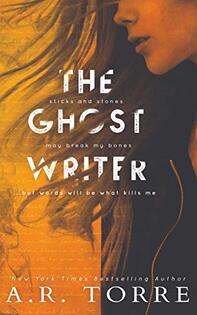 If you don't have tissues nearby, make sure you have them when you read this book. If you're a writer yourself, make sure you have two boxes. I was incredibly impressed with Ms. Torre's ability to reach deep into herself, pull out the emotional angst every writer experiences at some time or another, and place it squarely on the page. From realizing you need to write a story, to realizing you can't write it, to finally realizing that there is no other solution than to collaborate with your career nemesis, the story grips strong at the heart strings and daily struggles of every writer I've ever known, myself included. Ms. Torre has created an ideal recipe for escape reading. She begins with the hearty stock of a frustrated writer. That alone, however, isn't enough to make the story a part of the reader's soul, so she mixes in the unfailing love of a motherhood. To that, she adds the doubt of a marriage that feels somehow, "off". She then adds suspenseful spice in the form of a backstory that has missing pieces. For good measure, she throws in a couple heaping spoons full of an undercurrent threat of what comes next. Garnish it all with the necessity to maintain professional boundaries, and you have a story that digs deeper than most. This book will take you through the beginning, middle, and end, hanging by threads you didn't know were hanging, and attached to characters in ways you didn't know was possible. The emotional connection you feel to the writing will last long after you've finished the story. I read this book in audiobook format, on a long drive while traveling to our cabin. I listened to it while walking the trails with the dog, I listened to it while making breakfast and sitting in the hammock in the afternoon. It was sincerely, unputdownable. The narration was exceptional, and added depth to an already impressive story. Some books lend themselves very well to being read aloud, this is one of those books. I finished the story while driving home one afternoon, and was grateful for the fact that I was driving on the highway, and passing cars couldn't tell that I was crying like a heartbroken teenager at the end. I have not read any of Alessandrea Torre's other books, yet, but you can be sure that they are on my list of must reads. I highly recommend this particular story for all of my Indie Author friends. You will NOT be disappointed! 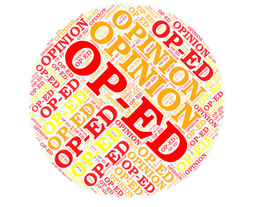 After spending the past few days nearly suffocated in the news that Dr. Seuss Enterprises (a foundation that I thought was about preserving the man’s work) was pulling six of his books from print, my head started spinning. It’s cut me to the quick, and I’m a bit more upset about it than I expected. Aside from the painful thoughts of erasing literature and the history that goes with it, censorship, and a host of other political arguments, both for and against the move; I began to reflect on my own experience of these books and others, growing up. I began to unpack my recollection of the books I read, and their influence on who I have become as an adult, mother, wife, and author. It’s been an interesting few days of emotional highs and lows… and at last, this is what I’ve come to. I appreciate your indulgence. I attended a “progressive” elementary school. The year I started public kindergarten, 1969, it was a new approach to learning, for its time. I was exposed to lots of different lessons, in all sorts of different forms. Some lessons were real-world… third grade, where we learned about public messages in our television production studio in the basement underneath the library… fourth grade choir, where we sang folk songs with political and sociological messages… fifth grade band, where we learned to work in concert, understanding the nuances of our combined passion… sixth grade science, where we dissected cow’s eyes and learned that there are more similarities than differences between animals and humans. Some lessons were “under the radar”… nature walks through the trails that surrounded the school, where we learned to be respectful of nature and stay on the path… gym class, where we learned the value of including everyone in the game, and the strength and confidence competition creates – without destroying friendships… and the equality that is created within a student body when the building is shaped like a circle, the classrooms were “pie slices” and no one was “above” or “below” anyone else. My love of literature, instigated at home, and nurtured in that school, was the one element of education that shaped my life more than any other. Teachers expected us to read one hundred books a year. The reading level didn’t matter – the fact that we read, did. Voracious reading today, sustains me in my literary career and envelops me in a community of like-minded souls who are incredibly progressive and inclusive in their thinking. In third and fourth grade, we were taught to write book reports and essays. Now, I use those same skills when writing book reviews and blog posts. In fifth and sixth grade speech class, we were expected to present in front of our class every week, on an assigned topic or form. Today, I use those same skills at book readings, in teaching creative writing workshops, and in hosting book festivals. I am grateful for the diversity of skill sets and understanding that my teachers instilled in me, and that my family encouraged. All of this prepared me well for the life of a supportive friend, mother, wife, business owner, and author. We read lots of different books in elementary school. Some we read silently, invoking our imagination to decipher meaning and impact with internal, personal reflection. Some we read aloud in class, discussing with our teacher and peers shared ideas, concepts, influence, and symbolism. Still others were read aloud to us in the library, so we could drown in the pure entertainment that is storytelling. Never once, was there a political message, an agenda that was culturally mandated, or a requirement of “equal time” for authors, characters, or story. We learned about history, and the communities that came before us, how they lived, and their belief systems through story. We learned about science and how imagination informs invention through story. We learned the differences in regional dialect, the use of slang, and the strength of the spoken word as it is all presented in story. I was fascinated with the imaginations of the authors I read, as I still am today. We read “The Snowy Day” by Ezra Jack Keats. It never occurred to me that this was a story about a Black child. To me, it was simply a story about a snowy day and a child’s personal experience of that day. We read “Ping” by Marjorie Flack and Kurt Wiese. It never occurred to me that this story was about an Asian family and their occupation. To me, it was simply a story about a little duck, and how important it was to be mindful of your responsibilities, and how your actions impact others. We read “Tom Sawyer” and “The Adventures of Huckleberry Finn” by Mark Twain. It never occurred to me that I was reading a tale of the trials of slavery and marginalizing the Black experience. To me, it was simply an adventure story, embarked upon by very different friends, who shared with each other their understanding of life. We read “Mike Mulligan and His Steam Shovel” by Virginia Lee Burton. It never occurred to me that this was a story about manipulation and greed. To me, it was simply a story of confidence, self-reliance, and the pride one can take in a job well-done. I suppose all of those stories and their messages could have been interpreted either way, depending on the guidance I had in reading them. I believe, in that fact, lies the key. I had guidance in what I read, and an opportunity for honest, open discussion about everything I encountered on the printed page. Hearing today, how so many voices are crying for diversity, yet simultaneously overlooking a greater opportunity for gentle inclusion, regardless of differences, frustrates me. The voices make me consider how other stories might be interpreted, and what might be removed from our shelves, and denied to our children for their own interpretation. Indulge me a moment longer, as I reflect on one of my all-time favorite stories, “Winnie The Pooh” by A.A. Milne. This author and his tales of adventure and discovery were the reason I wanted to become an author so badly. In these stories, I found acceptance, love, reflection, understanding, and excitement. Stories of this bear and his band of dedicated, devoted friends will never leave my shelves… but I wondered, if Dr. Suess’ work can be marginalized – a thing I never thought possible – what of A.A. Milne’s work? What interpretation might these same individuals create to realign the Pooh stories? I imagine, they would begin by dissecting character… Kanga: She is portrayed as a kind, nurturing, gentle soul. But, she could also be seen as one who is consistently taken advantage of and used in moments of manipulation because of her kind nature. And by the way, why is she the only female in this group? In one easy stroke, both women and altruism have become offended. Tigger: The free spirit, the risk-taker, the embodiment of pure energy. Although, he could also be seen as one who has ADHD, one who can’t focus, one who needs constant reprimanding. Again, in one simple mistake of interpretation, special needs individuals are offended. Rabbit: Detail oriented, a leader, one who insists on following a plan and takes charge, often guiding the others (albeit making mistakes sometimes). Sure, but, he could also be interpreted as being saddled with OCD (Obsessive Compulsive Disorder) which makes him less reliable because of his constant need for unachievable order inside of chaos. And there you have it, mental illness has been offended. Piglet: The tender-heart, the cautious soul, the courage seeker. Give it a little thought, and he could also be retold as an enabler, an introvert with a tiny, inconsequential voice. Yup, once again, the emotions self-doubt and the speed at which different people learn and adapt has been offended. Owl: The wise one, the one who thinks before he takes action, the researcher. And yet, he could also be seen as the nerd, overbearing, and an over-inflated megalomaniac. In one tiny moment positive self-esteem has now been offended. Roo: The helper, the cheerleader. However, he could also be seen as the tagalong, the nuisance with no experience to offer the group. Positive attitude and enthusiasm have just been offended. Pooh: The artist, the dreamer, the poet. Give it a moment, and he could also be seen as the airhead, the one with no direction or goals, a poor example to follow. Emotional, even-tempered thoughtfulness has now been offended. Eeyore: The unassuming recluse, the independent observer, the one most comfortable in routine. Now, with very little work, he could also be seen as the embodiment of depression and paranoia. We’ve just offended those with a lack of confidence and mental health challenges. Christopher Robin: The believer, the indulgent one, the patient one. How easy it would be to see him as an embarrassment to those who don’t believe, can’t indulge, and don’t have patience. At last, we’ve now offended hope. If you haven’t discovered my meaning yet, let me make it very clear. Whenever we read literature, especially with children, we need to remember to include guidance and conversation to find meaning and understanding. The slippery slope of erasing books from our common experience because we are overly sensitive about offending with exclusivity is one that only gets slipperier as time moves forward. Diversity expects that we see each other as different. Acceptance insists that we understand life’s experiences as unique to every individual. Civility requires that we are patient with those differences, and in our process to understand them. Eliminating the questions don’t make us smarter, more accepting, or more inclusive. Finding the answers and engaging in an open, honest discussion of our differences, does. So sure, take away these books that offend you, for whatever reason. The problem will still be there. And it will get bigger because of the elimination of a forum to explore and discuss our commonalities along side our differences. The solution lies in acknowledgement and acceptance of our differences, and an enthusiastic celebration of those contrasts, not in hiding behind a wall of false equality and sociological perfection. I don’t want to be the same as everyone else. I want to thrive in my uniqueness, and I want you to thrive in yours. Simple acceptance shouldn’t be this hard. 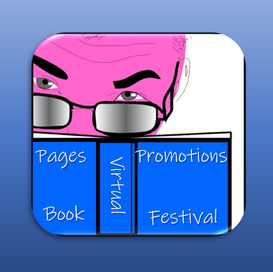 During the past year of COVID isolation, many Indie Authors – indeed, most Indie Authors – have been forced to cancel plans for fairs, festivals, and bookshop signing events. For those of you who are unfamiliar, these events are the best way for Indie Authors to meet new readers, make (what we hope will be) a lasting connection, and sell books. These events are not only for the readers, but for the authors, too. It is a way for Indie Authors to network with other authors, gain valuable insight into craft concepts, marketing tips, and simply build new friendships with people who “get it”. One who writes, after all, is a specialized brand of unique. We talk with our imaginary friends regularly, and they tell us some of the most fascinating stories, that we are then compelled to record and share. People who don’t engage in this process may not fully understand. But the other writers – oh yeah – they get it. So, events where we can connect with both the storytellers and the readers of the world are critical to our sanity. One fuels the process to continue, the other legitimizes it. Over the past year, I’ve been privileged to host three very different Virtual Book Festivals. Why? Because I noticed that Indie Authors needed another option for outreach. Because I noticed that readers were complaining about a lack of new book discovery. Because I missed my tribe. And, because I live by the philosophy that says, “You don’t get to complain if you don’t take action.” So, I jumped in the deep end, and launched headlong into what has been, and might become, one of the most positive community engagement opportunities I’ve ever done. That first Virtual Book Festival, back in June of 2020, was a bit shaky, to say the least. Zoom was new technology to me, and I didn’t have what I would call a solid outline. I’d hosted in-person festivals in the past, and even produced fifty-four episodes of a TV program spotlighting and interviewing Indie Authors, but those are vastly different from entering into a digital world, attempting to achieve the same ends. I designed a loose format of interviews and readings, hoping that it would all work out. That first Virtual Book Festival simply reinforced the fact that, creatively, I cannot survive as a Pantser! I enjoy the flexibility structure offers… and the back up plan when things don’t go so smoothly. So I tried again in October. The Autumn Virtual Book Festival was similar in many ways, but different, too. In my very Plotter nature, I made a plan, devised a theme, and tried to build games and prizes that supported the idea. Some of it went well, some of it didn’t. It turns out that there is indeed such a thing as over-planning, and over committing to too many subplots. It was a fun festival, with nearly sixty-five separate events, each author getting two days of airtime… but it was difficult to convey the core of the message – extraordinary books and authors – to readers, and it was exhausting for me. So, I did what I do with my writing, I enlisted the help of editors and beta readers that I trust, and I killed my darlings. After that process of evaluation, I figured, what the heck, I’ll take what I’ve learned, and try again in February. After all, one doesn’t stop writing simply because one doesn’t sell thousands of books with the first two offerings. And, I wasn’t doing anything in the middle of winter, anyway. So, I revamped my plan. I reduced the number of events, scaling back to just one per day (instead of two or three), combined authors in genre groups, rather than in individual segments, and added an element of fun and mystery with a Blind Date marketing platform. To create a greater level of security, and (I hoped) to create a more welcoming (and less intimidating) interaction, I limited the onscreen video to presenting authors and backstage crew. I added mini-workshops to support aspiring writers and authors with their craft, and changed the contest/prize schema to once per day, rather than once per week, with three fun bonus prizes, and a super bonus prize for the really courageous who chose to be silly along the way. Again, some aspects of this festival were more effective and engaging than others, and I learned a lot. The most important lesson… what is a creative marketing hook for me, is a decisive challenge for others, even after I explain my vision. Will I ever do a Blind Date event again… perhaps not. It was a tricky wicket for some. However, not to be deterred completely, and because plotting is certainly my strength, even before February was over, I began planning for the June 2021 Virtual Book Festival… in the event that there was interest to continue from the authors. It turns out, there was some interest… so, onward ho! Now, as I’ve once again launched my skiff into an unknown sea, I find myself in the doldrums of self-doubt and continuous creative self-recrimination. Am I actually providing a thing – writing a Festival Story – that people want? I know that my motives are equal parts selfishness in my own discovery of new authors and their books, and a sincere desire to help those in my tribe to be more successful and thrive in this unusual preoccupation we share. Yet, in the dead air of day, with the tell-tails laying flat against the canvas… I begin to hallucinate mirages of mutiny on the horizon. Yes, I’ve got cabin fever, as do a lot of us… but is that reason enough... is another Virtual Book Festival solution enough... to outweigh the investment of my, and everyone else’s, time, attention, and money? The promise I made to myself was that I would continue until I was told to stop… as with my writing. And yet, one must consider the perspective that silence may also be the answer that should direct one’s action; at least until the voices are brave enough to deny and decry. After all, if it can happen to Dr. Suess, can’t it also happen to me? Is that a risk that’s worth taking in the promotion of myself? In my promotion of others? In my practice of writing? I have set my sails, plotted my course, and made the commitment. Once more, I will cast my dock lines aside this June. Beyond that… the sea is a fickle mistress, and perhaps my time and energy as lighthouse keeper will become moot. |
WelcomeYou'll find some interesting stuff here... some Op Eds, some Information, Book Reviews, and More. Poke around the categories and see what ruffles your feathers... in a good way! Archives
July 2024
Categories
All
|
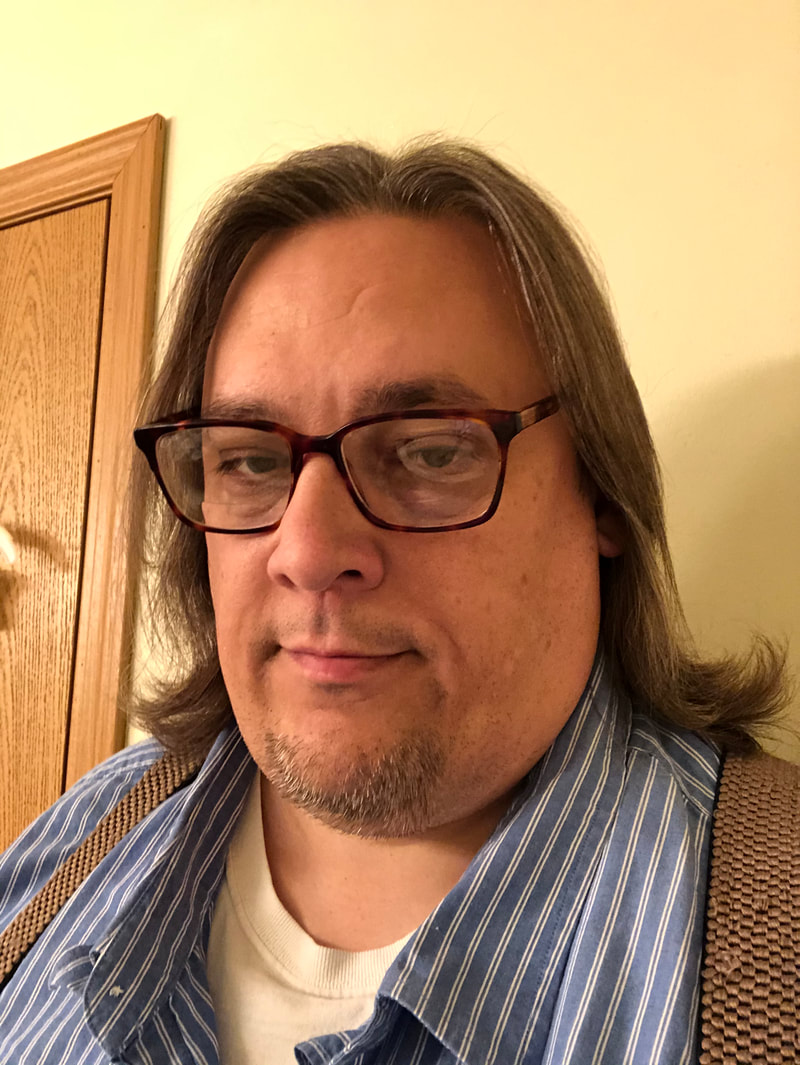
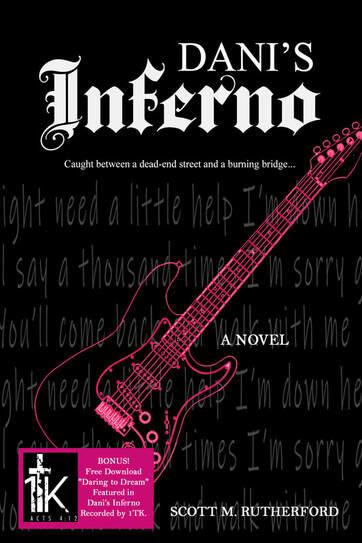
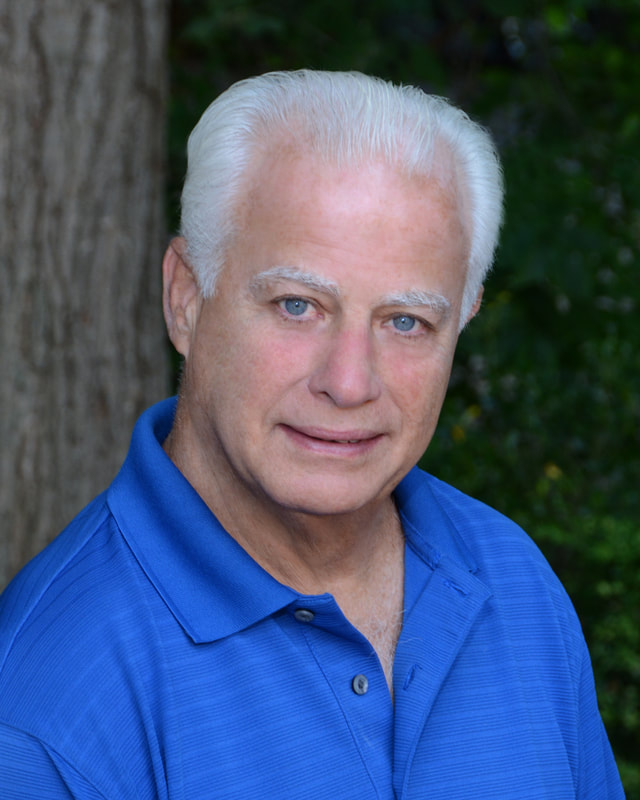
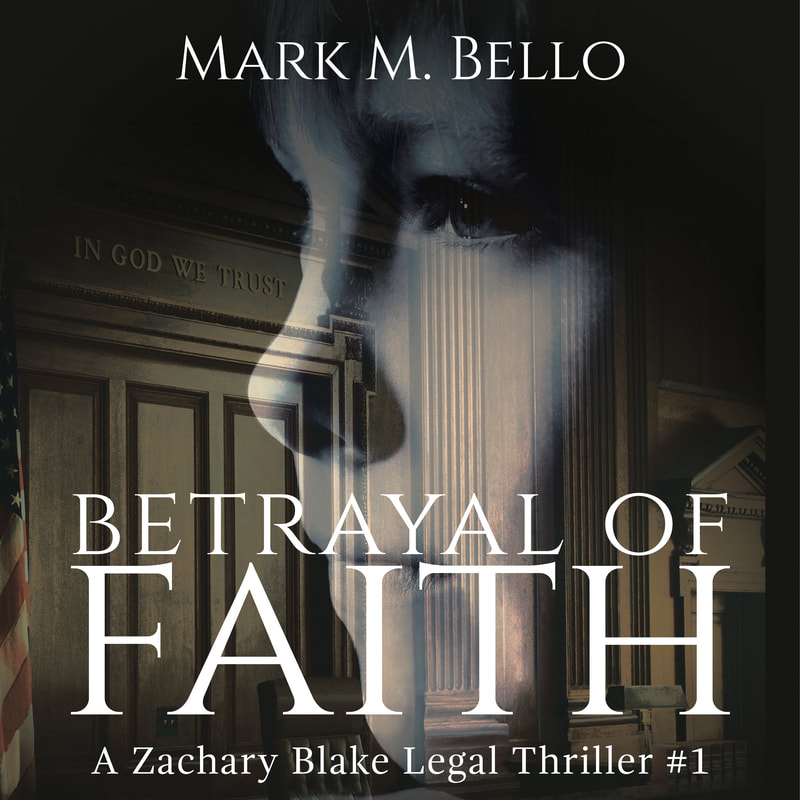
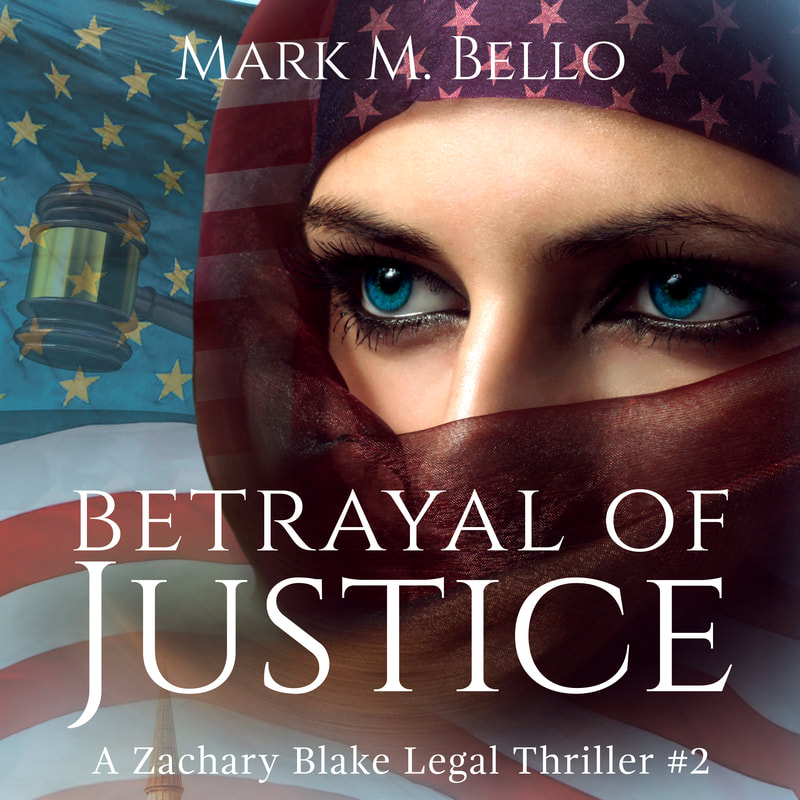
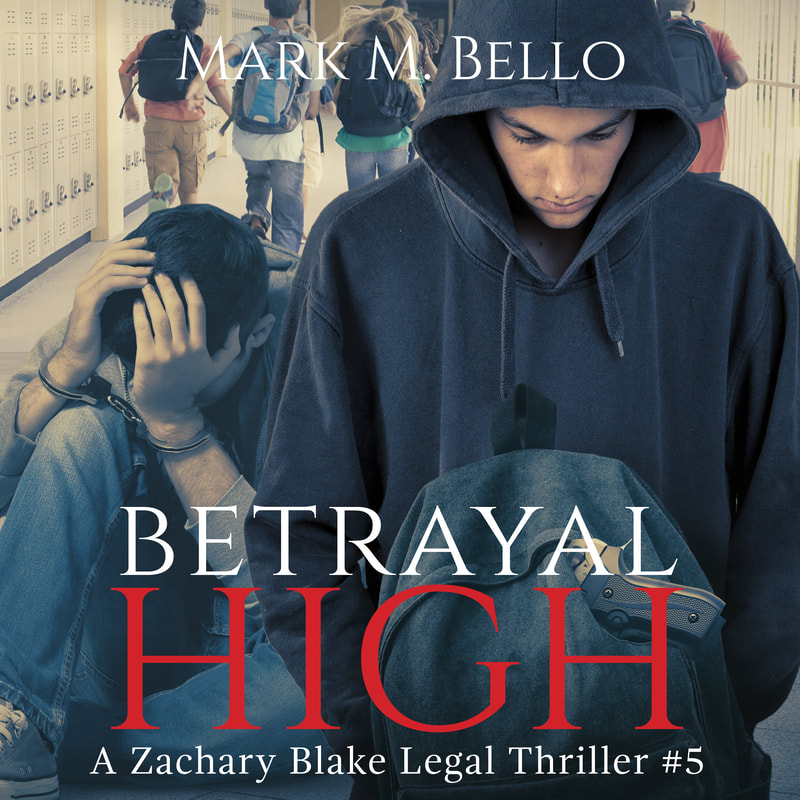
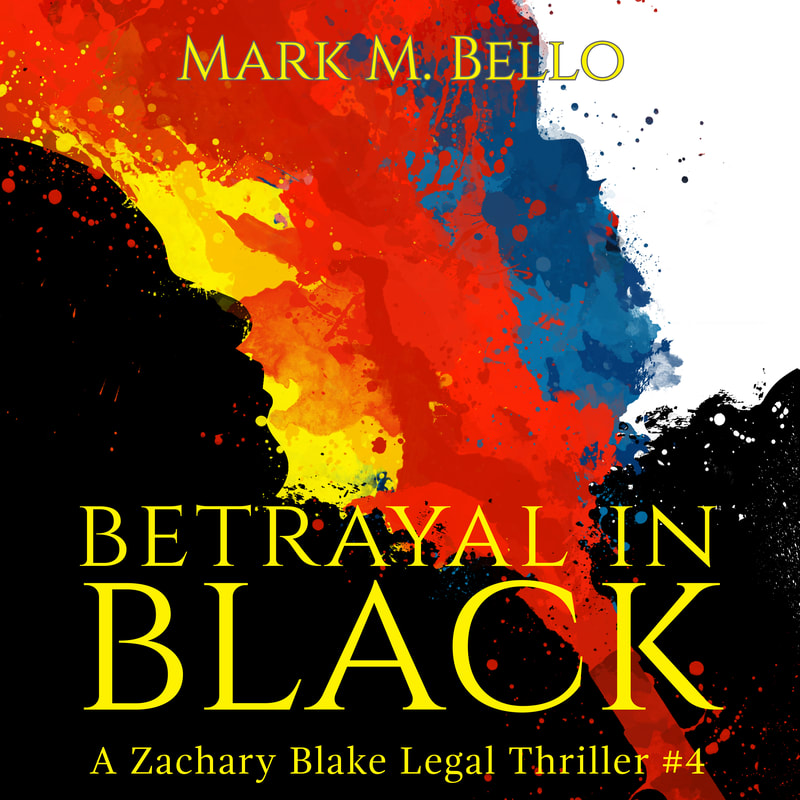
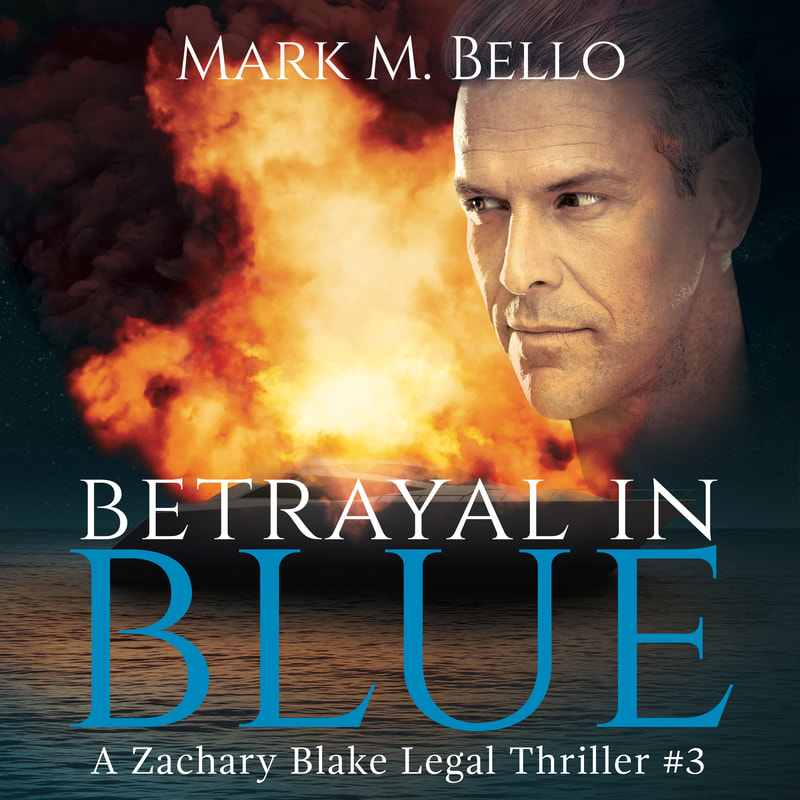
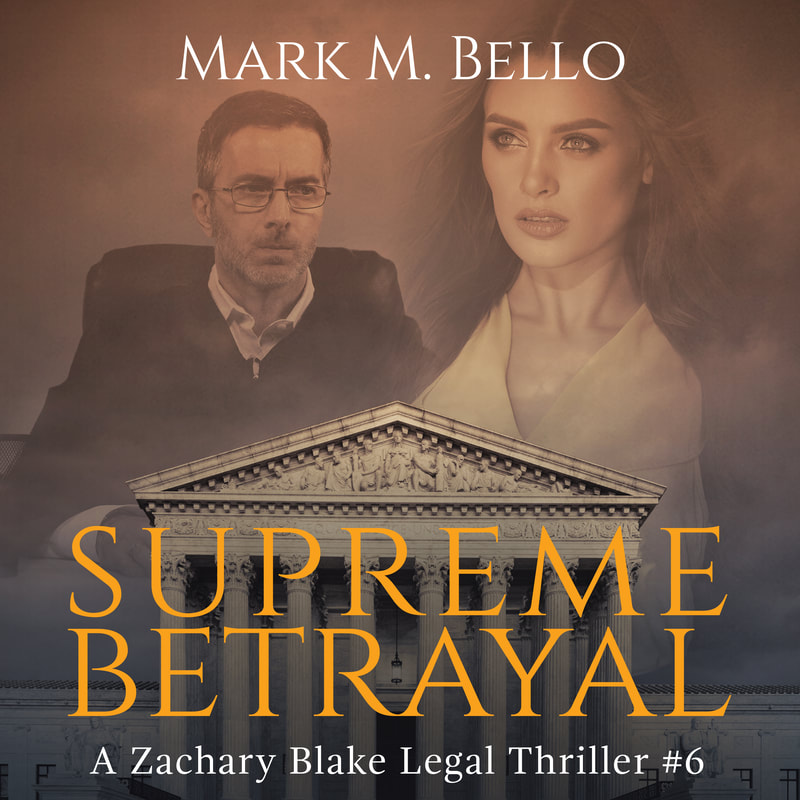
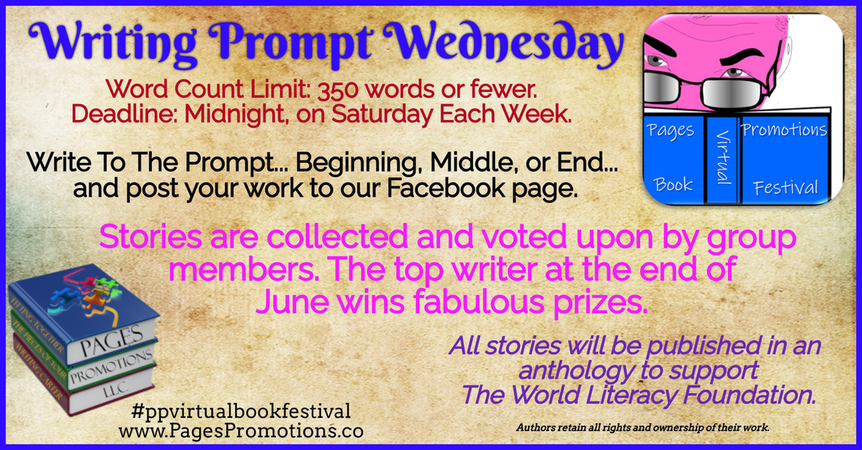
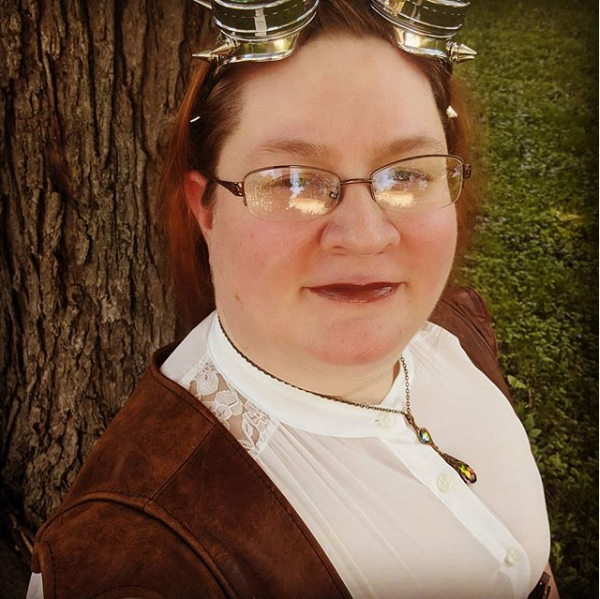
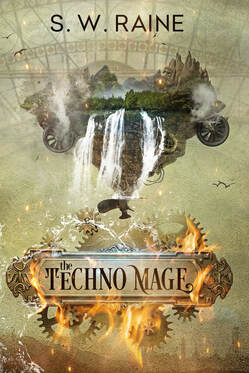
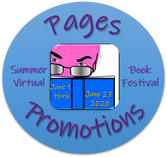
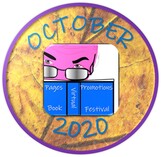
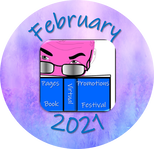
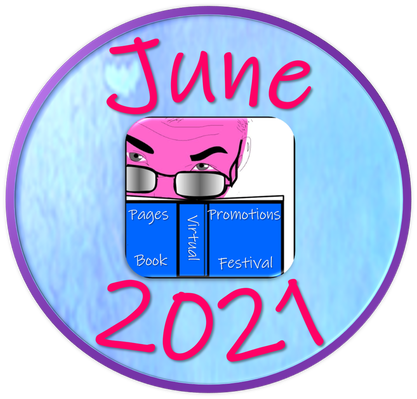
 RSS Feed
RSS Feed